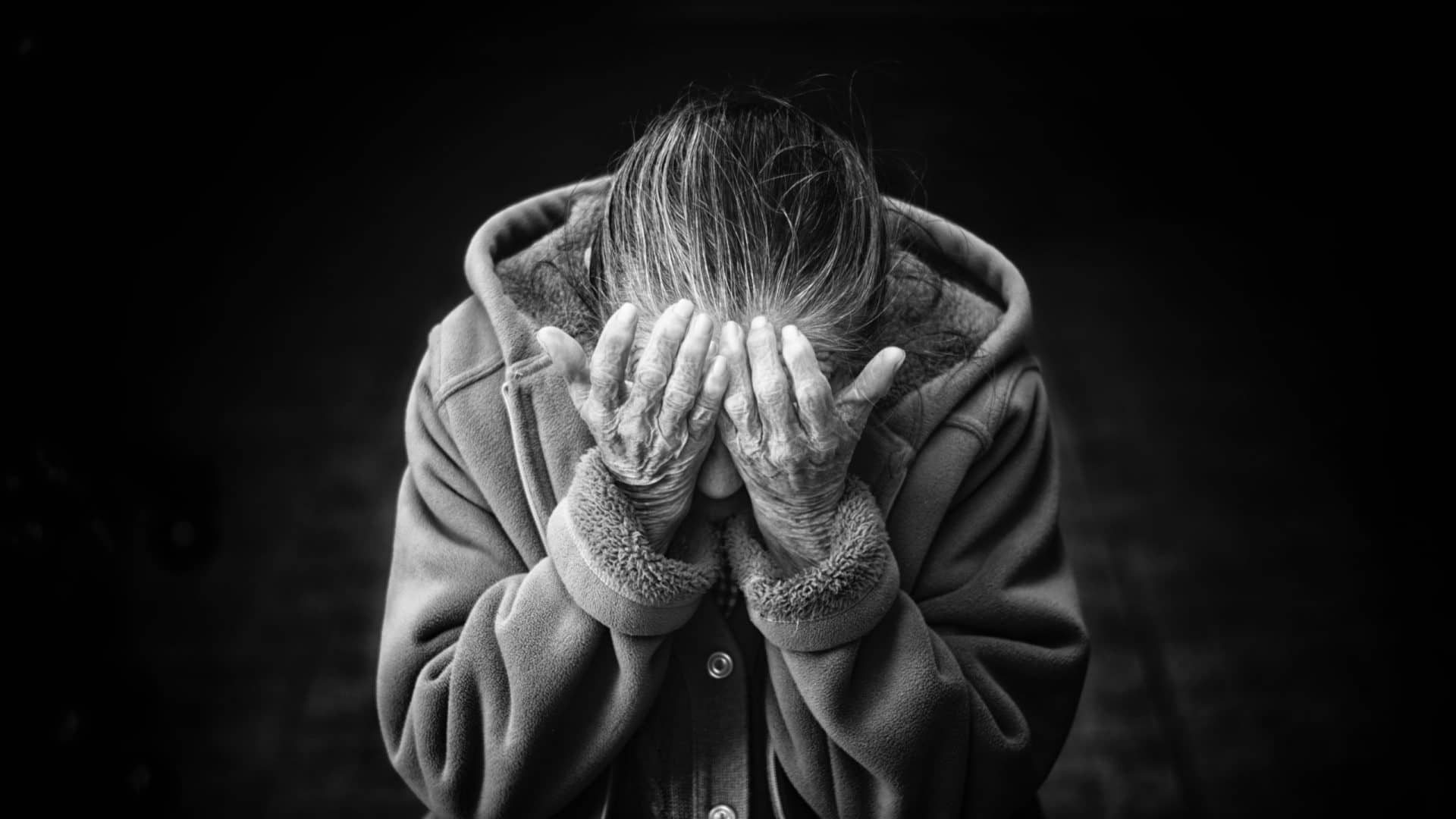What is Depression?
Depression is a mood disorder that includes feelings of sadness and loss of interest in formerly pleasurable activities. It is also known as clinical depression and major depressive disorder. Feeling down, being sad, and losing interest in things might be something that you face day to day. We all go through tough times and feel an array of emotions such as sadness, anger, shame, loneliness, etc. But, if these feelings persist for days and weeks, it might be a sign of depression.
Worldwide, depression is observed to be the most common type of disabilities, and it can affect people of all ages. Moreover, it can cause or worsen any physical illnesses and may even prevent them from curing. It has previously been observed that depression can elevate the symptoms of the following diseases:
- Asthma
- Cancer
- Cardiovascular disease
- Arthritis
- Diabetes
- Obesity
Every person is different and will experience depression in different ways. For some, it can interfere with their daily routines, making it hard to carry out daily activities. It can interfere with work, or even make it difficult to get out of bed. For some, it might feel like you are in a dark room or like emptiness at the end of the day even when you feel you did everything right. In any case, depression should not be ignored as it can cause serious damage to mental and physical health. It is a medical condition that keeps on getting worse it goes untreated.
Symptoms of Depression

Depression is much more than just feeling blue and sad. It can have a variety of symptoms that are different for every person. These symptoms can be with you all the time, or they might spring on you by surprise. Men, women, and children can experience different symptoms. However, they are not exclusive to gender or age.
Women might experience the following symptoms frequently:
- Irritability and frustration.
- Feeling sad and empty, intense hopelessness and anxiousness. Their emotional well-being is affected.
- Changed sleep patterns. They might find it difficult to sleep at night or to wake up early. Or, they might be sleeping too much.
- They might feel tired all the time. Their physical well-being is disturbed.
- Appetite has changed. They might lose or gain weight.
- Feel pain and aches that were not there before.
- Headaches and cramps, difficulty thinking clearly.
- Loss of interest in common activities. Feeling withdrawn from surroundings and social gatherings.
Men may experience the following symptoms:
- Aggressiveness, irritability, restlessness, and anxiousness.
- Feeling empty, sad, and hopeless.
- Reduced sexual desire, and lack of sexual performance.
- Loss of interest in daily activities.
- Thoughts of suicide.
- Excessive drinking, use of drugs, and engagement in high-risk activities.
- Insomnia and restless sleep.
- Fatigue, headaches, digestive issues, and pains.
- Inability to be attentive and concentrate on a single thing, difficulty in completing tasks.
Children can experience the following symptoms:
- Mood issues like crying, expressing anger, mood swings, and irritability.
- Getting into trouble easily at school, avoiding friends and siblings, having thoughts of suicide.
- Difficulty sleeping or sleeping too much.
- Feeling lethargic, loss of energy, digestive issues, weight loss, or weight gain.
- Feeling low self-worth, incompetence, intense sadness, and despair.
These symptoms can get worse with time. If you or someone you know is having many of these symptoms, then you or they may be suffering from depression and can seek help. Learning strategies to cope can be extremely helpful in alleviating these symptoms.
Causes of Depression
Depression can be caused by a variety of different factors and the cause can range from biological to environmental.
Common causes are:
Brain Chemistry
Neurotransmitters are the brain chemicals that play a significant role in depression. There have been many studies conducted that indicated that the change in the functioning of neurotransmitters and their interaction with neuro-circuits can result in the changes in mood stability thus leading to depression.
Hormones
Significant changes in the production or reduction of hormones inside our body can aid in inducing depression. These changes can occur for a variety of reasons such as pregnancy, after or before delivery, from thyroid issues, menopause, and multiple other reasons.
Medical Conditions
Some certain medical conditions and disorders put you at a higher risk of suffering from depression: chronic illnesses like cancer, asthma, chronic pain, attention deficit hyperactivity disorder, etc.
Family history
If you have a family history of depression and related mood disorders, you are more likely to get affected by them.
Substance Abuse
About 21% of people who have a substance abuse disorder are at risk for developing depression. This is because the use of drugs can lead to addiction and other serious issues.
Other risk-factors leading to depression are as follows:
- Personal history of mental health issues
- Stressful events like loss of a loved one (complex grieving), financial issues, or a divorce.
- Medications that are inducing the depressive moods.
- Low self-esteem and being self-judgmental.
Types of Depression
Depending upon its intensity and the symptoms, depression can be labeled in many different ways. For some people, there are temporary and mild episodes of depression that come and go. But for others, it is an ongoing cycle where they feel these symptoms all the time and feel unable to do anything.
Primarily, there are two types of depression:
Persistent Depressive Disorder
Also known as dysthymia, this is a chronic form of depression. For it to be diagnosed, the symptoms of depression must last for at least two years. It affects the normal functioning of life, more so because of its ongoing symptoms.
People with persistent depressive disorder commonly feel:
- Loss of interest in formerly pleasurable activities or even normal day to day activities.
- Less productivity in work and other tasks.
- Lower self-esteem than before.
- Hopelessness
Major Depressive Disorder
Is a severe form of depression. In these cases, the person shows persistent feelings of hopelessness, sadness, worthlessness, and despair that doesn’t go away easily. To have this diagnosis, at least five of the following symptoms must be visible for more than 2 weeks:
- Significant weight loss or gain
- Feeling guilty and worthlessness all the time
- Feeling depressed for most of the time
- Either sleeping a lot or not sleeping at all
- Low energy and fatigue all the time
- Slow thinking and movements
- Thoughts of suicide and death
- Loss of interest in regular activities
- Unable to concentrate or make decisions
Though major depressive disorder is in itself a big diagnosis, it has many subtypes referred to as ‘specifiers’ by the American Psychiatric Association (APA). These are:
- Catatonia
- Atypical features
- Mixed features
- Seasonal patterns
- Peripartum onset, during or after pregnancy.
- Melancholic features
- Psychotic features
- Anxious distress
How to Treat Depression
Nobody deserves to live with depression and there are ways to improve your condition and live a healthier life. First of all, if you are having the symptoms shown above, please consult with your healthcare provider for further assistance and to hear your options for treatment.
Seeking treatment and healthy coping mechanisms can be beneficial in several ways. The following are the most common methods used for treating depression:

Psychotherapy
In psychotherapy, the therapist explores the inner cause of your depression and lets you find ways of coping through guidance and a proper treatment plan. It can be extremely helpful to talk and let it all out, acknowledging the stressors in life, and getting to know yourself on a deeper level. It is also helpful to have a treatment plan. Psychotherapy can also include group and family therapy sessions.
Exercise
If you think you have just started to show symptoms and that it might be getting chronic, exercise is an easy and helpful way to help you cope. The best thing you can do early on is to exercise daily. Start slow and set the intention to work out 3-5 days a week. Exercise is known to have tremendous effects on the body as it induces endorphins that improve your mood and keep you fresh.
Take care of yourself
When you have insight, you can do plenty of things to control your situation. For example, you can start to set a routine for yourself to sleep on time and turn off the TV or mobile devices that might be causing any disturbance. You can also read a book or start a journal to express yourself.
Moreover, you must take care of your eating habits. Eat healthily and at the right time. Avoid negative influences in your life. Also, participate in the activities that bring you joy and pleasure. Making minor changes in your life at the early onset of symptoms can help you cope better and make appropriate lifestyle changes.
Depression can be temporary or long-term. In either case, it’s helpful to be aware of how your body and mind change. You know yourself better than anyone. You know when you are feeling down or when things are becoming unmanageable. Your body and mind will tell you when it is time to seek help and start bringing that change in your life. However, you have to take steps and focus on your healing.
Also, if you are facing the symptoms of depression for a prolonged period, it may be time to seek professional help. When things feel out of control, there is no need to wait for them to get worse. Please contact your healthcare provider and get the treatment that you deserve.
Luis is a Licensed Marriage & Family Therapist who graduated from Long Beach State University with a Masters degree in Counseling Psychology (2015). He also has a Bachelors's degree in Child and Adolescent Development with an emphasis on Public Policy from San Francisco State University (2011). Luis has over 9 years of experience working with children and families both in education and mental health. Previously, Luis worked for a non-profit agency in San Francisco, CA providing mental health consultation in early head start programs and SFUSD pre-schools. Currently, Luis works at Kaiser in San Francisco providing mental health services.
His therapeutic interests include working with Trauma, the LGBTQ community, Children, Families, Couples, and POC. His personal interests include; Films, Reading, Writing, Art, Travelling, Disney, and Food. He is also a recipient of the California State Stipend award (2015). PsychoSocial is part of Luis' dedication to mental health and an example of his passion to educate others. Luis hopes that through PsychoSocial he will be able to help in the fight to end the stigma around mental illness.
#EndtheStigma
-
Luis Cornejo, LMFThttps://psychosocial.media/author/psychosocial/September 18, 2017
-
Luis Cornejo, LMFThttps://psychosocial.media/author/psychosocial/January 28, 2018





















One thought on “What Is Depression and How Can You Cope”